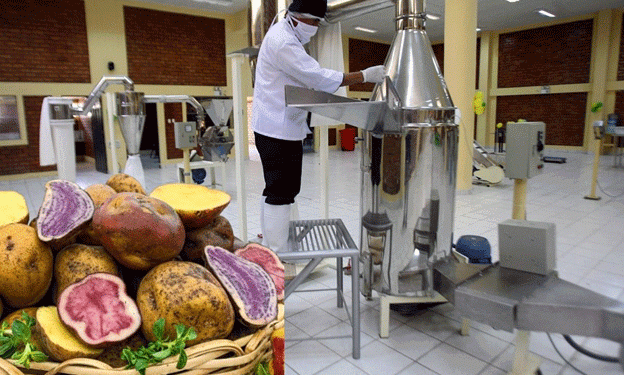Economic Struggles Amid Potato Overproduction
In regions like Andahuaylas, Apurímac, the price of high-quality potatoes has dropped to PEN 0.60 (USD 0.16) per kilogram at the farm gate due to oversupply, exacerbated by rising labor costs. Some farmers are opting not to harvest, while others persevere despite facing significant financial losses, amounting to approximately S/3,000 per hectare.
Industry Insights:
- Production Dynamics: Peru experiences peak potato production between May and June, with volumes reaching up to 100,000 tons, highlighting the need for sustainable solutions to manage oversupply.
- Call for Value Addition: Experts advocate for investments in processing plants to add value to potatoes, thereby enhancing profitability for farmers.
Government Initiatives and Challenges
Recent announcements by Minister Ángel Manero Campos regarding partnerships between the government and private sector to establish a pilot plant for biodegradable packaging at Lima’s Santa Anita Producer Market have sparked optimism. This initiative aims to mitigate the impacts of overproduction by promoting value-added products.
Investment and Potential:
- Biodegradable Packaging: The proposal to use potatoes in manufacturing biodegradable packaging aligns with global trends towards sustainability and environmental responsibility.
- Financial Considerations: An estimated PEN 30 million (USD 7.8 million) minimum investment is required for a processing plant capable of handling 5 tons per hour, emphasizing the scale needed to address oversupply effectively.
Expert Perspectives and International Comparisons
Engineers Miguel Quevedo Bacigalupo and Luis Gomero Osorio stress the need for sustainable industrial solutions amidst Peru’s seasonal potato surpluses. They highlight international experiences from countries like Argentina and Spain, where continuous supply chains are crucial for sustaining processing industries.
Future Directions:
- Feasibility Studies: Before scaling up, feasibility studies are essential to assess potato varieties, technological readiness, production costs, and raw material supply.
- Lessons from Colombia: Learning from Colombia’s success in promoting value-added agricultural products, Peru aims to adopt clearer development plans to support industrialization efforts.
Addressing Peru’s potato overproduction requires a multi-faceted approach involving government support, private sector investments in processing infrastructure, and strategic planning to balance supply and demand. By focusing on sustainable practices and value-added processing, Peru can transform seasonal challenges into opportunities for economic growth and environmental stewardship in its agricultural sector.







